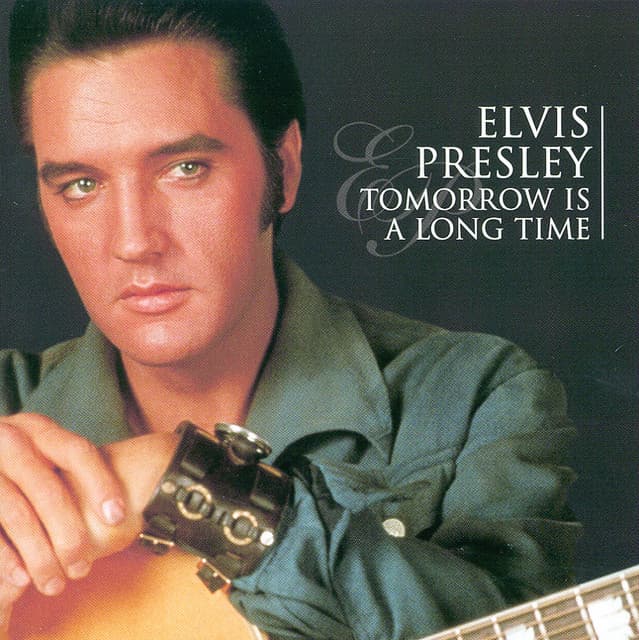
An Elegy of Longing and Solitude
There’s a certain kind of beauty in a song that feels like a quiet, private moment—something that wasn’t meant for the loud, public stage but was discovered and cherished by those who listened closely. Elvis Presley‘s haunting rendition of Bob Dylan’s “Tomorrow Is a Long Time” is precisely that. It’s an often-overlooked gem in the King of Rock and Roll’s vast catalog, a testament to his depth as an artist beyond the glitz and glamour of Hollywood films and Las Vegas stages. This is a song that didn’t climb the charts in the way his massive hits did; it wasn’t a single and was initially buried as a bonus track on the soundtrack to his 1966 film Spinout. It’s this very lack of commercial fanfare that makes its story all the more compelling.
The song itself wasn’t originally a hit for Dylan either. He wrote it in 1962, but it wouldn’t see an official release until his 1971 compilation album, Bob Dylan’s Greatest Hits Vol. 2. The inspiration for the song is said to have come from his deep feelings of longing for his then-girlfriend, Suze Rotolo, who was in Italy at the time. The lyrics speak of a profound loneliness and the slow, agonizing passage of time when you are separated from the one you love. It’s a feeling many of us can relate to—the way a day can feel like an “endless highway” and a night like a “crooked trail” when you’re pining for someone.
It was the folk singer Odetta’s bluesy, soulful 1965 cover of the song that caught Elvis’s ear. During a recording session for his gospel album, How Great Thou Art, Elvis heard the song and was instantly captivated. He found a connection to it, perhaps to a place in his own heart that felt the weight of fame and the isolation it brought. His rendition is stripped-down and raw, a stark contrast to the formulaic movie music he was often forced to create at the time. The recording feels intimate, as if you’re sitting in the room with him, listening to him sing his heart out. His voice, in this moment, isn’t about bravado or showmanship; it’s about pure, unadorned emotion.
The power of Elvis’s performance was not lost on the song’s original writer. Bob Dylan himself, in a later interview, famously called Elvis’s recording of the song “the one recording I treasure the most.” It’s a powerful endorsement from a legendary songwriter and a beautiful tribute to the soul that Elvis Presley poured into the track. For those who remember the 1960s, this song is a reminder of a different side of the King—the artist who was always searching for authenticity, a way to connect with the deep roots of American music that had first captured his imagination. It’s a melancholic, beautiful piece that lingers long after the final note fades, a quiet hymn to love and the ache of separation.